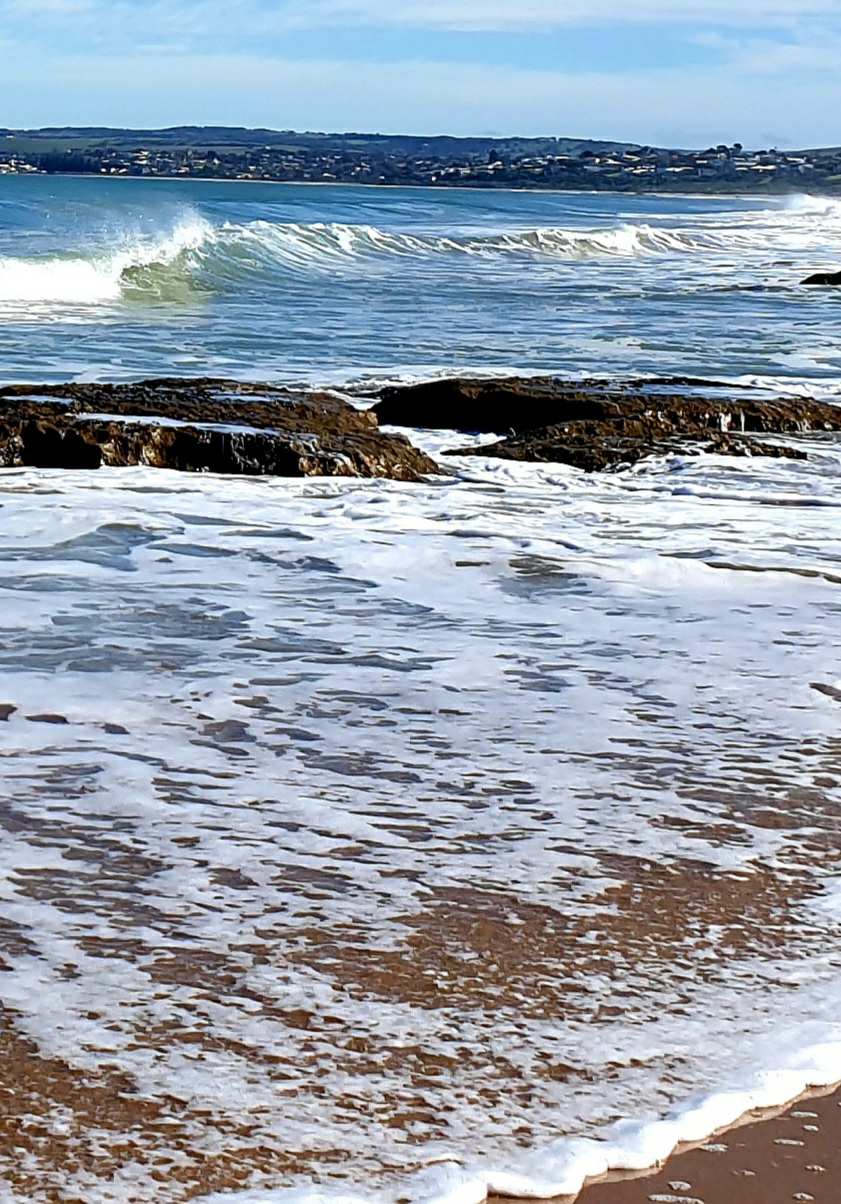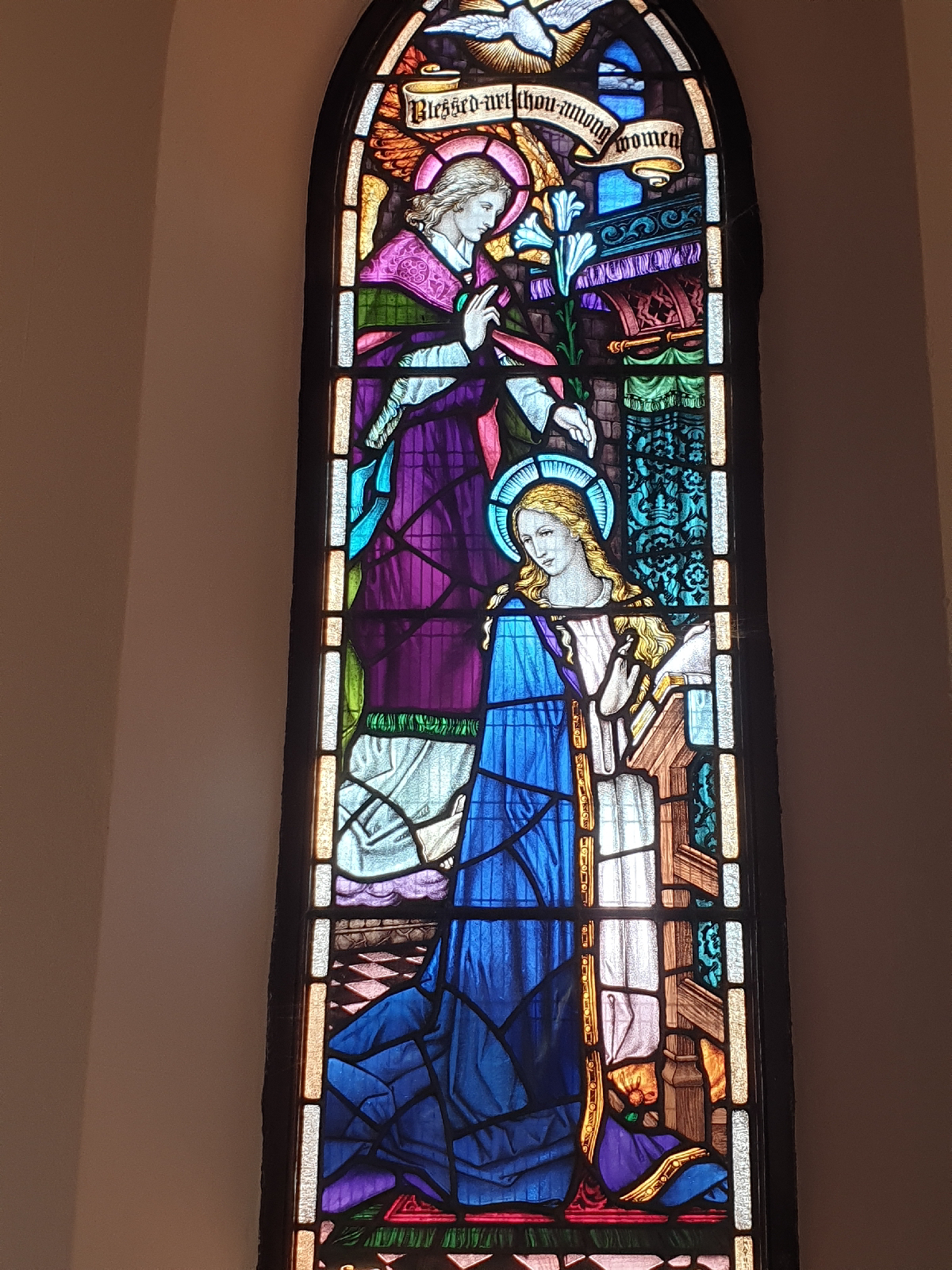Lent 1 2024 Spiritual Disciplines: Meditation: Nicholas
I heard the distinctive sound of car tyres on the course windblown sand of Moama beach against the wash of the sea gently caressing the shoreline, the delicate aromas of the beach and the spring sun on my arms. I opened my eyes and there was a police car a few metres away. I met the gaze of the young man framed by the open car window as he gazed down on the circle of people sitting on the sand. There was one word uttered softly, ‘peaceful’ a gentle wave and an electrical hum as the window ascended and slowly away went the police car.
As our world has become ever more complex, life more and more uncertain and stressful many of us are turning to various forms of meditation, sometimes called mindfulness. People meditate for any number of reasons. In one form or another it has always seemingly been part of human experience. Its not always about sitting still; attentiveness, a word I prefer, can be woven beautifully into our days cooling our brains from their work of thinking and deciding.
I feel as a person who meditates a strong sense of connectedness with Jesus on his retreat in the wilderness. For the Gospels the wilderness is a raw and brutal place, like parts of many of our inner cities breaking bad. The heavens are violently ripped open, like the curtain in the Temple ripped at the death of Jesus. The Spirit is at once a grubby rock pigeon and like a bouncer at a nightclub pushing out an intruder. A reminder that Mark may be giving of the expulsion of the first humans from Paradise. Jesus is immersed in his calling and like a Jewish prophet or a Greek wandering philosopher wrapped in his cloak must embrace within his being his Great Work and his coming arrest by the police and his judicial execution by the State. Jesus is in no lineage of teaching or apostolic succession. It is the Divine mystery which calls him out and gives him his authority. Jesus is at peace with himself which above all else threatens others and continues to do so.
On Moama beach 14 years or more ago I sat in a circle with people, sometimes referred to as ‘troubled youth’ who would have been likely to have encountered the police under different circumstances. They had all been excluded from formal education and I was there with youth work colleagues working with the city of Onkaparinga. Earlier we had practiced some brief forms of attentiveness or mindfulness trainings and then had come a ritual where we stood on the footbridge at the mouth of the Onkaparinga River and released fragrant lemon scented gum leaves into which we had mentally placed some of our memories and hurts to be carried into the mingling of fresh and salt water. On the sand we were gathering the experiences of the day before a celebratory pizza after which those young people would return to the reality and challenges of life. I wonder sometimes what has happened to them and if that day gave them some strategies for their lives.
Attentiveness is a powerful way of training the mind. It helps us to recognise we are more than our thoughts and far from numbing the mind I believe it makes room for better and more life-giving decisions. Long retreats, long sittings are not for everyone and indeed can be harmful but brief attentiveness practices can support us in the ebbs and flows of life. Meditative practices do not supress the angels and demons in our own minds and the noise of our own anxieties but they can help us to live more wisely. The biologist and Anglican Rupert Sheldrake writes, ‘Meditation helps bring our minds closer to ultimate reality, which is conscious, loving and joyful. Our minds are derived from God, and share in God’s nature. Through meditation we can become aware of our direct connection with this ultimate source of our consciousness when we are not distracted by thoughts, fantasies, fears and desires’ (p 40 Science and Spiritual Practices’)
The word meditation comes from the same Indo-European root as medicine. Latin ‘mediatio’ means to attend to or apply oneself to. This fits well with the theme of Lent in which we in community encourage and support each other in spiritual practices. If prayer is both speaking and listening then attentive moments and minutes is listening to the voice of love which speaks to us from our truest and deepest selves.
As I practice meditation whatever form it takes I either begin or continue with the brief prayer beloved of the Orthodox Church. “Lord Jesus Christ, have mercy”. In this practice we place ourselves at one with Jesus, open to the Spirit and in union with all creation being made whole and in communion with the Church called into the blessedness of the Divine.
I love to meditate in quiet churches before the blessed sacrament. I also love to meditate with my eyes open for safety on a crowded street and especially by the sea or wild places. Being in nature is healing for me. It is also the practice of Jesus who meditated and prayed in the open air and we too can expect angels even in the form of police cars to stop and bear witness to the peace from above and we may even weave wild beasts and creation into our care.







